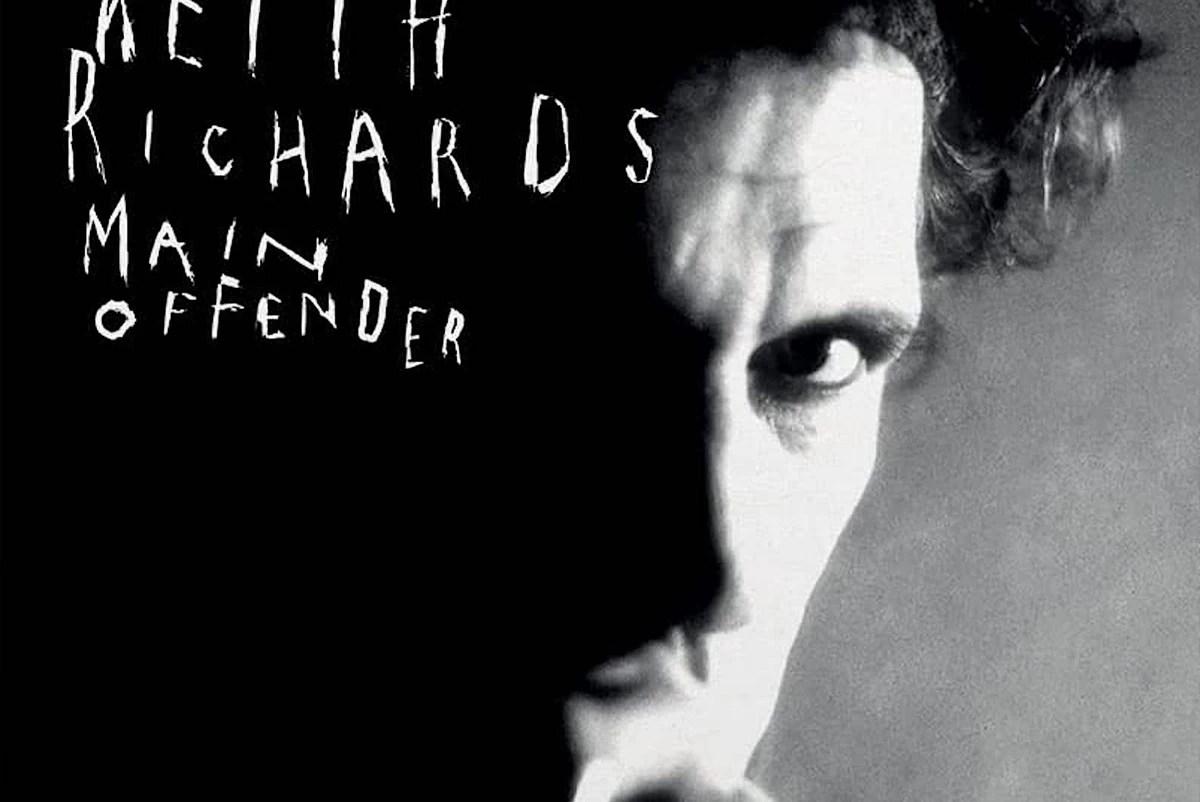Keith Richards’ solo debut had been far more than comfy Rolling Stones-isms. Talk Is Cheap kicked off with the nasty funk of “Big Enough,” then continued through a cool menagerie of personal influences from rockabilly to Memphis soul, from reggae-fied rock to Louisiana-inspired roots music.
The gold-selling Top 40 album even provided a first draft for “Almost Hear You Sigh,” which became a Top 40 U.K. hit in 1990 for the quickly reformed Stones.
By then, however, Richards had toured with his X-Pensive Winos side band, featuring Waddy Wachtel, Steve Jordan, Ivan Neville and Charley Drayton. That impacted the tone and approach for their follow-up, Main Offender. “If I hadn’t have taken the Winos on the road,” Richards later told Billboard, “this record would probably have been totally different than it is.”
They’d found both a settled groove and an easy camaraderie that translated into the next sessions, held between March and September 1992. There’s a uniformity of feel, and personnel, that makes Main Offender quite different from the guest-laden Talk Is Cheap.
With those earlier sessions, “it was never, ‘Let’s make an album.’ It kind of came about in bits,” Richards later told the Los Angeles Times.
“I didn’t think we could do it all by ourselves,” he added in 2014’s Keith Richards on Keith Richards. “I felt I needed to utilize friends of mine. This time, we felt more confident in what we wanted it to sound like. We had more focus. The first album was kind of a fishing expedition. We were just seeing what we could do. That’s always difficult because you can’t create a style until you have one.”
What held things together initially was the X-Pensive Winos, a group that originally formed in much the same haphazard way. Richards had met them, one by one, through other famous musical friends. “We immediately hit it off. The next thing I know I get this message: ‘Call Keith. He’s looking for you,’ Wachtel told the Burbank Leader in 2016, “and so I get him on the phone and he said, ‘I’m putting a band together and you are in it.’ Well, what can you say but ‘OK!’ – and that was the X-Pensive Winos.”
Watch Keith Richards’ ‘Wicked As It Seems’ Video
The Rolling Stones are often, and not incorrectly, linked to the city-blues tradition of Chess Records, but Richards’ riffy slant on the guitar had just as much to do with more groove-focused figures like Otis Redding and Solomon Burke. Main Offender proves the point, as Richards lets all of the coiled danger and flinty emotions of Talk Is Cheap unravel into a series of almost trance-like moments.
“The latest arrangements are more adventurous because we’re really playing with time,” Richards admitted in a separate Billboard interview. “Rock ‘n’ roll is a limited form musically, but we use a lot of percussion in a way that’s technically not overemphasized – yet you still have the pleasurable feeling of getting up to your neck in it, because it’s ambient.”
Wachtel played a more central role, serving as a named co-producer for the first time while co-writing four of 11 songs. (Jordan returned as co-producer, after co-writing every track with Richards on Talk Is Cheap.) “Bringing Waddy in on the production was the other big step,” Richards said in Keith Richards: The Biography. “Steve and I are very good, but we’re so close to it. We’re black and white in more than the obvious ways, and Waddy was a great breakthrough.”
In many cases, Richards took the LP’s loose feel into the lyrics, which he’d make up – or completely improvise – based on the music happening around him at that moment.
“I can’t walk into a room with a sheet of paper and say, ‘I’ve got a song,'” Richards told The New York Times in 1992. “The song has to come from the music. That’s the way I build them up. I’ll say, ‘Well, I was going to sing about love here, but now it’s got to be about hate.’ Just depends on how it sounds. Every track has to give you an attitude.
“See, rock ‘n’ roll, as a form of music on paper, is very simple,” he added, “but there are variations you can get in there, and one of the biggest ones is with time, and with phrasing. A lot of it’s instinct. Once you spot something, you just grab a hold of it and say, ‘OK, let’s see where it goes.'”
Watch Keith Richards’ ‘Eileen’ Video
If all of this tended to give Main Offender a sense of dulled edges on initial listens, that was just fine with Richards. The album, he seemed to argue, was meant to be lived with.
“I tried to avoid making too much sense on this record because to me that ambiguity and mystery, and a little provocation to make you think, is something far more powerful and more important than just wagging your finger and saying, ‘I know what he’s saying – don’t do this, do that,” Richards told Billboard. “If you’re a musician, silence is your canvas and you never want to fill in the whole thing, because then you’ve just covered it all. One of the most interesting parts about music is where you don’t play.”
Released on Oct. 19, 1992, Main Offender was critically well received, but perhaps inevitably couldn’t repeat its predecessor’s sales success. The lead single “Wicked as It Seems” matched Richards’ best showing, hitting No. 3 on the mainstream rock chart. But the LP finished outside the Top 40 at No. 45 in the U.K., and barely cracked the Top 100 in the U.S. “Eileen” followed as a second single, but also faded fast.
Richards nevertheless returned to the road with the X-Pensive Winos, content to let audiences figure it all out for themselves. “I go for something that sounds great, and if you want to try and figure out exactly what it means, let me know,” he told the Times, “because there’s no exact meaning to it. It’s like life. It’s all a little jagged and a little misunderstood.”
At least one person was listening: Mick Jagger. Richards’ work away from the Rolling Stones again inspired their next single, 1994’s “Love Is Strong,” which followed the same dark template of “Wicked as It Seems.”
Top 40 Blues Rock Albums
Inspired by giants like Muddy Waters, Robert Johnson and B.B. King, rock artists have put their own spin on the blues.
See Keith Richards Through the Years



